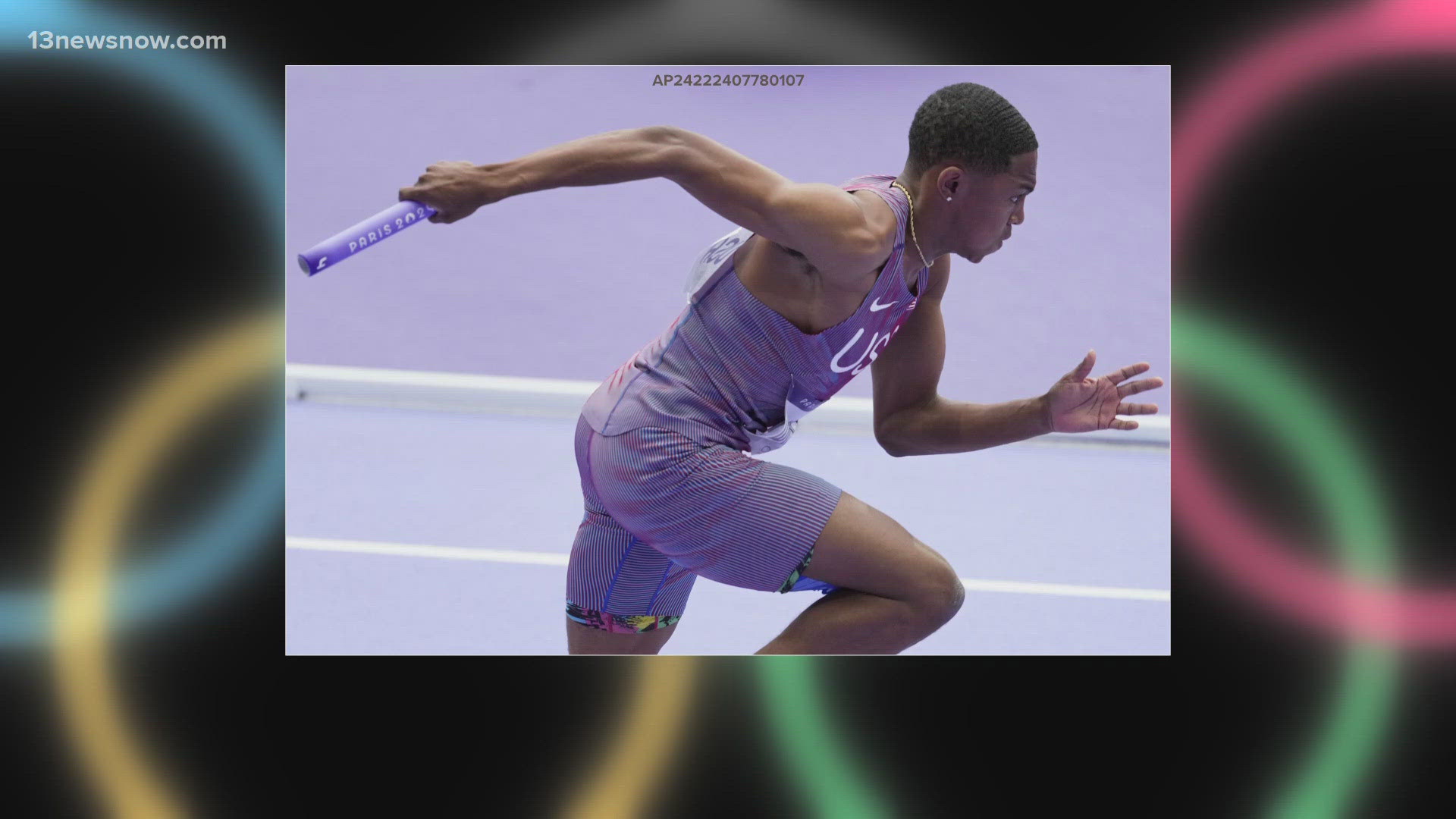PARIS, France — American teenage sprinter Quincy Wilson’s first run at the Olympics on Friday was a learning lesson.
The 16-year-old, who is originally from Chesapeake, Virginia, became the youngest American male to compete in track at the Olympics, left the U.S. in a distant seventh place after his opening lap in the first round of the 4x400 relay.
The Americans, normally dominant in this event, needed a rally from Christopher Bailey on the final lap simply to qualify for the final. The team finished third in a time of 2 minutes, 59.15 seconds.
There was a nearly 3-second gap between Wilson and Letsile Tebogo, the 200-meter champion from Botswana who was a last-minute replacement. Wilson was picked up by veteran teammates Vernon Norwood, Bryce Deadmon and Bailey.
“I wasn’t 100% myself, but my team came out here and did it for me,” Wilson said. “I knew I had a great three legs behind me and knew it wasn’t just myself. Because if it was myself, we’d be in last place. But these guys come out there and gave it their all. ... They ran their hearts out.”
It’s been quite a summer for Wilson, who already has a name, image and likeness deal with New Balance and put off getting his driver’s license so he could run in Paris.
He twice broke the under-18 400-meter world record at the U.S. Olympic trials in June with times of 44.66 and 44.59.
His opening leg on Friday was listed at 47.27. He didn’t want to elaborate on why he wasn’t 100% for the race.
“I’m with a great team, had them on my side through the whole thing,” said Wilson, who had his family in the stands for his big moment.
With his performance Friday, Wilson became the youngest American male to compete at the Olympics in track. He surpassed Arthur Newton, a steeplechase runner from 1904 who competed at 17, according to Olympic historian Bill Mallon. Other young runners to compete at the Summer Games include Jim Ryun, who was 17 when he qualified for his first Olympics in 1964, and Erriyon Knighton, who made it to Tokyo three years ago when he was 17.
Norwood found himself caught up in the moment — until he had the baton.
“I’m watching a 16-year-old running in the Olympics, making history,” Norwood said. “I’m just looking at him, like, ‘Oh, snap back in and let me get the stick and get it going.’”
Norwood told Wilson before they went out to the track to soak in the moment.
“I’m super proud of him,” Norwood said.
The morning after winning the 200, Tebogo arrived at the track expecting to get in a light workout. He was urgently needed to run on the relay team after his teammate, Leungo Scotch, was dealing with an injury.
“So I rushed back to my room, got my stuff and I made it,” Tebogo said.
He didn’t get much sleep as his celebration lasted well into the evening. It hardly showed on the track as he channeled the speed that allowed him to beat Kenny Bednarek and Noah Lyles on Thursday.
“It wasn’t the plan for me to run” in the relay, Tebogo said. “It was shocking for me.”

